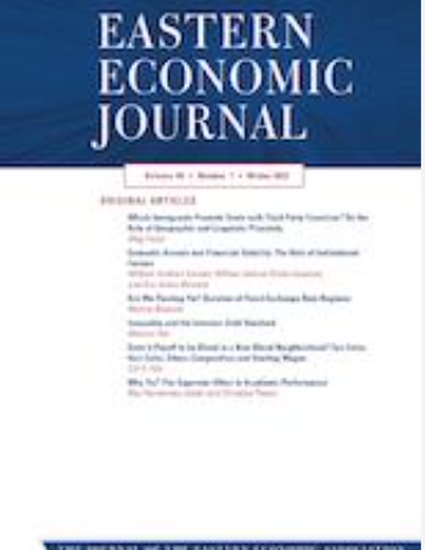
Article
Schools of Thought and Economists' Opinions on Economic Policy
Eastern Economic Journal
(2014)
Abstract
In this paper we bring to data the hypothesis that economists’ opinions are related to the schools of thought they declare to belong to. Two are the main results of our analysis, based on a novel dataset on Italian economists’ opinions. The first one is that, on average, differences in the School of Thought predict differences in economists’ opinions on a large set of normative questions on economic policy, even controlling for individual and other group or community characteristics, spatial and knowledge heterogeneity, and political orientation. Second, the way of grouping together different schools of thought is crucial as far as their usefulness to predict economist’ opinions: Dichotomous groups (e.g. Mainstream vs Non-Mainstream, Orthodox vs Heterodox) have poorer explicative power than more articulated groups that preserve the differences between schools of thought.
Keywords
- School of thought,
- Economists' disagreement,
- Group identity,
- Economic policy,
- Italy
Disciplines
Publication Date
Winter September, 2014
Citation Information
Luca De Benedictis and Michele Di Maio. "Schools of Thought and Economists' Opinions on Economic Policy" Eastern Economic Journal (2014) Available at: http://works.bepress.com/luca_de_benedictis/32/
